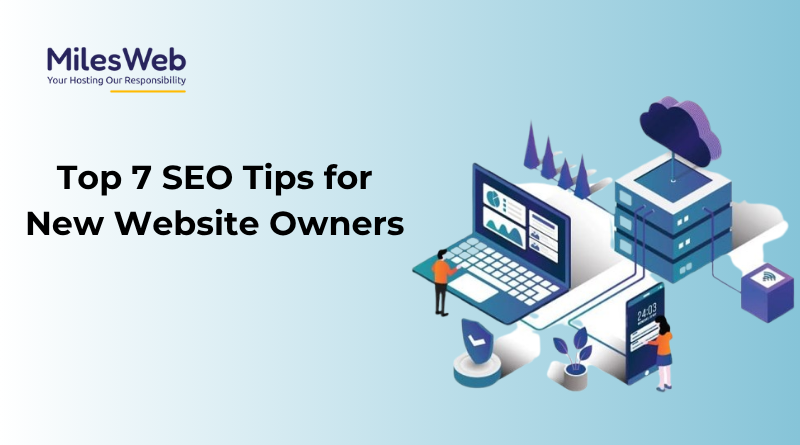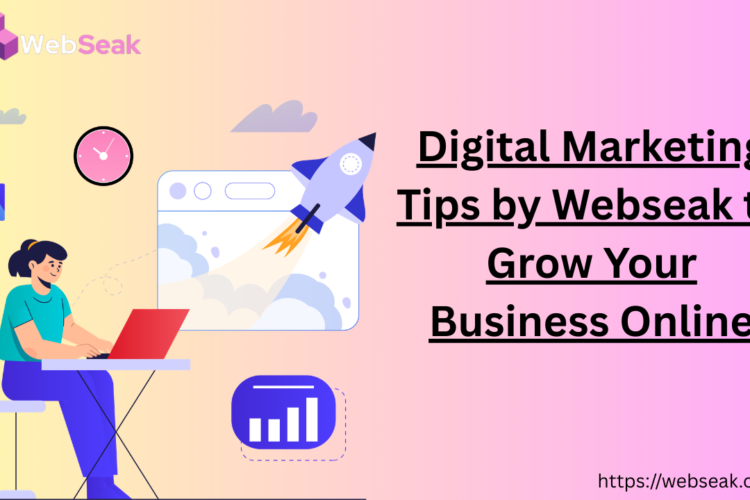
SEO is a core requirement of every online business campaign. It is what gets your website seen on the internet by turning your website and content as optimized as possible. But with all of the things, such as domain name registration, website hosting, and core web vitals, that go into SEO, it can be hard for individuals who are not experienced in online marketing to understand SEO completely.
If you’ve just started using the cheapest cPanel hosting or are struggling to gain the best SEO rankings, you’re in the right place. This blog will take you through the fundamentals of SEO to help you boost your global reach, SERP ranking, and website traffic. We’ll also discuss the top 7 SEO strategies and explore all the nitty-gritty you must master to get the best out of your business. Let’s get started!
Why is SEO Important?
Search engine optimization consists of optimizations you need to perform to improve your business’s search engine rankings. SEO is like polishing your online presence so that people will buzz about it. Search engines rank your website on relevance, security, and performance using advanced algorithms, and they determine your position on the SERPs from those scores. Deploying SEO practices boosts your website’s chances of being listed on that all-important first page.
Top 7 SEO Tips for Website Owners
Search engine optimization can be daunting to newbies; however, by following subsequent actionable tips and tricks, it becomes much easier.
1. Add Keywords Strategically
The initial step in learning SEO for entrepreneurs is understanding how you can target and integrate the correct keywords properly. Implementing these keyword practices will significantly help you reach the top of search engine results.
- Do Keyword Research
Deep research enables you to find the most suitable keywords for your website. That generally involves knowing your target audience in depth, and learning their needs, difficulties, and trends applicable to them.
- Insert Keywords Organically
Search engine rules and regulations are getting intricate at detecting whether keywords are added organically in content. Rather than ensuring you have the ideal keyword density, you should focus on integrating them into the content and optimizing your content as required.
- Avoid Stuffing Keywords
Keyword stuffing is the practice of excessively repeating a keyword to manipulate the SERP rankings. Try to evade this, as it will degrade your rankings.
2. Create Unique and Organic Content
Search engines have very advanced criteria to measure how valuable your content is—criteria that have been modified further with the arrival of AI. Making sure your website’s content provides substantial value enables you to rank higher.
- Focus on Being Informative
Concentrate on being informative and offering new information that is educational, inspiring, and actionable when necessary.
- Use Visuals Well
Visual elements such as images, media, and infographics improve user experience and keep users engaged for longer periods on your website, especially when your website is hosted on reliable platforms from providers like MilesWeb.
- Periodically Update Your Content
Search engines prefer the latest content, so update your blogs and website content on a regular basis so that your pages remain relevant and up-to-date. Go back even to your earliest articles to introduce new data or refine their quality.
3. Use Social Media
Periodically sharing content from your social media platforms enhances visibility and generates traffic. These are the best practices for utilizing social media to enhance your online reach.
- Spread Your Content
Maximize exposure by taking advantage of all the social media handles, together with email newsletters and even content syndication networks.
- Promote Content Distribution
In addition to sharing your content, you also need to make article sharing easier by adding a one-click share button. You can also add a call to action for users to share it with others.
- Connect With Your Audience
Interacting with your audience creates brand awareness and forms a connection with individuals that solidifies your brand identity. Your interactions will fortify your brand authority and build a loyal following of clients who attest to your offerings.
4. Emphasize User Experience
Responsiveness and performance contribute to an excellent user interface. Your website must be responsive and captivating. Follow these practices to make sure you have a top-level interface.
- Intuitive Design
Accessible interfaces and fluid navigation are the core of user interfaces. Ensure menus are simple, use suitable icons, and maintain a smooth flow between website pages.
- Insightful Feedback
You can take your UX design a notch higher by incorporating stimulating feedback in the form of graphics, animations, and other media.
- Consistent Structure
Keeping uniform colour, text font, and layout also enhances usability, as clients would not likely feel disoriented while browsing your website.
5. Enhance Your Technical SEO
Technical SEO consists of fine-tuning your website speed, layout, and operations to help search engines better understand and rank your website.
- Website Framework
Search engines prefer neatly designed website structures. Ensure you utilize properly categorized URLs, construct a sensible redirection menu, and utilize internal linking to link relevant content.
- Crawlability
Enhancing crawlability means using XML sitemaps and the robots.txt file to direct search engines towards your key pages and keep them away from inappropriate content.
- Technical Errors
Perform regular website scans to identify broken links, plagiarized content, and other technical aspects that search engines find problematic.
6. Optimize for Gadgets
Simplicity and usability on smartphones should be at the top of your list. The majority of visitors browse websites on their smartphones, so Google and other search engines keep additional focus on how quick and responsive your website is on devices with various resolutions.
- Responsiveness
Have a minimum of mobile latency on each component of your website. Problems such as unresponsive buttons and touch gestures can significantly influence UX and SEO.
- Loading Speed
Mobile phones render pages in multiple manners, like pictures must be optimized to various screen resolutions and the code should be minimized following best practices.
- Mobile-optimized SEO
Ensure that you optimize the SEO components that are mobile-specific, like AMP (Accelerated Mobile Pages), mobile-friendly meta tags, and viewport setup.
7. Track and Monitor Your SEO
To confirm if your SEO initiative is successful, you must do proactive monitoring. You can take the help of online tracking tools to evaluate how you can enhance your SEO campaign.
- Use Analysis Tools
Analysis tools such as Google Analytics enable you to precisely monitor your website’s performance and SEO statistics. This informs you about how your SEO campaign has performed up until this point.
- Log Performance Metrics
Consider websites’ organic search traffic (users searching for your website of their own), bounce rate, and conversion rates.
- Make Data-Driven Adjustments
Utilize the statistics you collect to recognize the scope for improvement so you can get the most out of the resources available to unlock SEO and growth.
Conclusion
SEO can be intricate at times; however, with these SEO tips, you can optimize your website to improve your search engine rankings. Learning these factors will provide you with a brief understanding of how to deal with the website issues that are affecting your search engine ranking.
Some factors of SEO, like technical SEO, mobile optimization, and UX, are best left to experts. However, you can still carry out basic page maintenance to make sure your website remains at its best possible position.
MilesWeb manages every part of the SEO process, promising you the best possible rank. Their tailored methods meet client demands, serving as your SEO companion or managing technical SEO while you focus on your core business.


